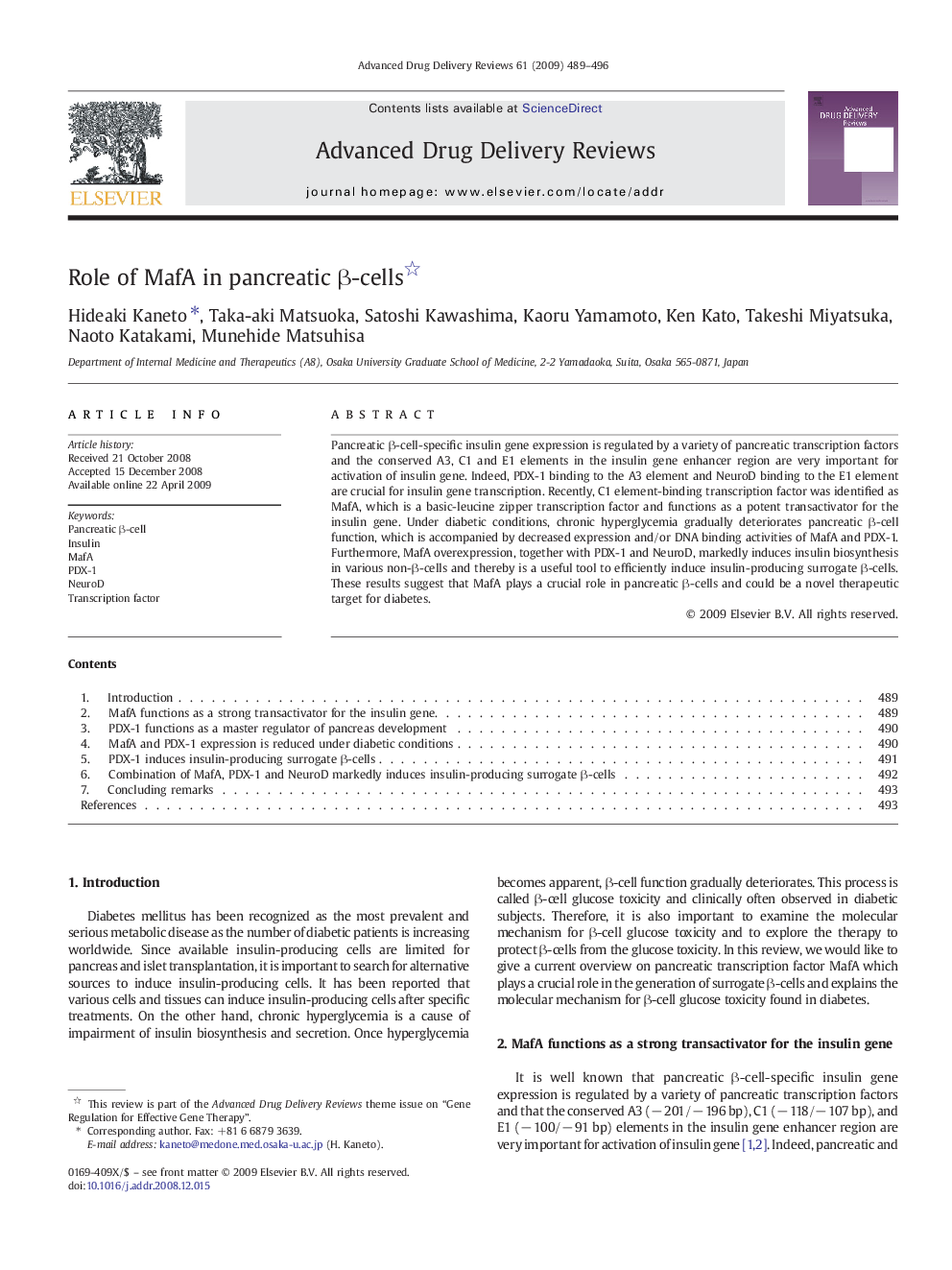| کد مقاله | کد نشریه | سال انتشار | مقاله انگلیسی | نسخه تمام متن |
|---|---|---|---|---|
| 2071602 | 1544604 | 2009 | 8 صفحه PDF | دانلود رایگان |

Pancreatic β-cell-specific insulin gene expression is regulated by a variety of pancreatic transcription factors and the conserved A3, C1 and E1 elements in the insulin gene enhancer region are very important for activation of insulin gene. Indeed, PDX-1 binding to the A3 element and NeuroD binding to the E1 element are crucial for insulin gene transcription. Recently, C1 element-binding transcription factor was identified as MafA, which is a basic-leucine zipper transcription factor and functions as a potent transactivator for the insulin gene. Under diabetic conditions, chronic hyperglycemia gradually deteriorates pancreatic β-cell function, which is accompanied by decreased expression and/or DNA binding activities of MafA and PDX-1. Furthermore, MafA overexpression, together with PDX-1 and NeuroD, markedly induces insulin biosynthesis in various non-β-cells and thereby is a useful tool to efficiently induce insulin-producing surrogate β-cells. These results suggest that MafA plays a crucial role in pancreatic β-cells and could be a novel therapeutic target for diabetes.
Journal: Advanced Drug Delivery Reviews - Volume 61, Issues 7–8, 2 July 2009, Pages 489–496